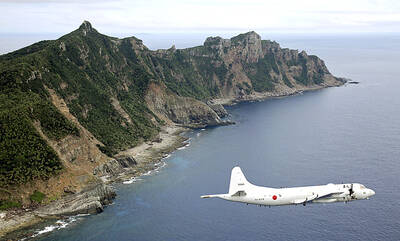Volkswagen said on Thursday it was recalling nearly 200,000 vehicles in Brazil because of a problem with the rear wheels that could cause them to seize or fall off.
The recall affects its Novo Gol and Voyage models made in Brazil before last July.
Volkswagen is the second-biggest carmaker in Brazil after Italian group Fiat. It has sold more than 17 million vehicles in the country — Latin America’s biggest car market — since launching operations there 50 years ago.
Its announcement follows a massive worldwide recall by Toyota over accelerator and brake problems, and another by rival Japanese maker Honda in North America, Japan, Taiwan and Australia of models with a dangerous airbag fault.
Volkswagen Brazil said on its Web site that 193,620 Novo Gol and Voyage cars were at risk of not having sufficient lubrication on its rear wheels, which “can cause noise and continuous use could lead to a blockage of the wheels.”
“In extreme cases, the wheel can come off,” it said.
“It’s important to note that this recall only concerns some vehicles in the 2009-2010 lot. Cars made after July don’t have this lubrication problem. From July to now, all other vehicles are OK,” a Volkswagen spokesman said.
The spokesman denied that Volkswagen had been slow to react, saying: “A certain time is needed to identify the problem. What’s important is that the problem has been identified and resolved.”
It was the third such operation launched by Volkswagen in Brazil.
In April 2008, it recalled 477,000 of its Brazilian-made Fox compact models to fix a fault with the rear seat. In December of that same year, 120,000 late-model Fox, Novo Gol and Voyage cars were recalled because of a brake fault.

MISINFORMATION: The generated content tends to adopt China’s official stance, such as ‘Taiwan is currently governed by the Chinese central government,’ the NSB said Five China-developed artificial intelligence (AI) language models exhibit cybersecurity risks and content biases, an inspection conducted by the National Security Bureau (NSB) showed. The five AI tools are: DeepSeek, Doubao (豆包), Yiyan (文心一言), Tongyi (通義千問) and Yuanbao (騰訊元寶), the bureau said, advising people to remain vigilant to protect personal data privacy and corporate business secrets. The NSB said it, in accordance with the National Intelligence Services Act (國家情報工作法), has reviewed international cybersecurity reports and intelligence, and coordinated with the Ministry of Justice Investigation Bureau and the National Police Agency’s Criminal Investigation Bureau to conduct an inspection of China-made AI language

BOOST IN CONFIDENCE: The sale sends a clear message of support for Taiwan and dispels rumors that US President Donald Trump ‘sold out’ the nation, an expert said The US government on Thursday announced a possible sale to Taiwan of fighter jet parts, which was estimated to cost about US$330 million, in a move that an expert said “sends a clear message of support for Taiwan” amid fears that Washington might be wavering in its attitude toward Taipei. It was the first announcement of an arms sale to Taiwan since US President Donald Trump returned to the White House earlier this year. The proposed package includes non-standard components, spare and repair parts, consumables and accessories, as well repair and return support for the F-16, C-130 and Indigenous Defense Fighter aircraft,

CHECKING BOUNDARIES: China wants to disrupt solidarity among democracies and test their red lines, but it is instead pushing nations to become more united, an expert said The US Department of State on Friday expressed deep concern over a Chinese public security agency’s investigation into Legislator Puma Shen (沈伯洋) for “secession.” “China’s actions threaten free speech and erode norms that have underpinned the cross-strait ‘status quo’ for decades,” a US Department of State spokesperson said. The Chongqing Municipal Public Security Bureau late last month listed Shen as “wanted” and launched an investigation into alleged “secession-related” criminal activities, including his founding of the Kuma Academy, a civil defense organization that prepares people for an invasion by China. The spokesperson said that the US was “deeply concerned” about the bureau investigating Shen

DISPUTE: A Chinese official prompted a formal protest from Tokyo by saying that ‘the dirty head that sticks itself out must be cut off,’ after Takaichi’s Taiwan remarks Four armed China Coast Guard vessels yesterday morning sailed through disputed waters controlled by Japan, amid a diplomatic spat following Japanese Prime Minister Sanae Takaichi’s comments on Taiwan. The four ships sailed around the Senkaku Islands — known as the Diaoyutai Islands (釣魚台) to Taiwan, and which Taiwan and China also claim — on Saturday before entering Japanese waters yesterday and left, the Japan Coast Guard said. The China Coast Guard said in a statement that it carried out a “rights enforcement patrol” through the waters and that it was a lawful operation. As of the end of last month,